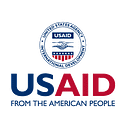Improving Access to Health Services through Mutuelles in Madagascar
Madagascar is striving to make health care services affordable for its most vulnerable people through community-based health insurance programs known as health mutuelles.
In mutuelles community members join together and pay contributions into a pool on a regular basis. When someone needs health services, they can draw from the pool to cover the cost.
Madagascar’s effort to establish mutuelles began in 2023, when the USAID Local System Sustainability Project (LHSS) started working with the Ministry of Public Heath to pilot the approach. Lessons learned from the pilot will inform the gradual expansion of health mutuelles nationwide and contribute to the Malagasy government’s 2015 National Universal Health Coverage Strategy.
‘‘There is no doubt that with health mutuelles, the lives of many people could be saved. Indeed, we cannot predict an illness, we cannot always have resources when we are ill. … I will work hard to train local stakeholders and scheme managers and sensitize people on the need to join health mutuelles.”
-Victor Rodiah Miarintsoa, Trainer
Evidence Gathering
The first step in designing the pilot was to gather evidence on the most suitable mutuelles model for the Madagascar context. LHSS collaborated with the ministry to conduct a feasibility study and organized a study tour in Senegal, which has had mutuelles since 1989.
Feasibility Study
The feasibility study was carried out in five communes of Madagascar’s Fénérive-Est district. The goal was to assess the economic and social conditions for establishing health mutuelles and estimate certain parameters, such as how much households should contribute to the insurance pools.
Study Tour
Along with decades of experience implementing mutuelles, Senegal has enjoyed strong government commitment to expand mutuelles throughout the country. LHSS supported a team of Malagasy officials and specialists, including a representative from the Presidential Office, to travel to Senegal to learn about the factors in Senegal’s success.
The findings from the feasibility study and study tour were used to develop a roadmap to pilot mutuelles in the Fenerive-Est district.
Setting up the Pilot
By March 2024, it was finally time to pilot the mutuelles in the Fenerive-Est district. First, community members elected the board members to oversee management and monitoring of the mutuelles.
Capacity Strengthening
Next, with LHSS support, the ministry held capacity strengthening training sessions with the elected board members. The 145 mutuelles board members and managers in the five communes learned how to sensitize the population about health insurance and collect insurance premiums.
LHSS also supported training for the heads of public health facilities in Fénérive-Est who will be contracted to serve members of mutuelles. They learned the basic concepts of insurance schemes, how to manage contracts between health facilities and mutuelles, and how to ensure correct reimbursement for quality health care services.
“The training was very rich in knowledge and skills transfer on health insurance, and specifically on mutuelles. Their implementation in the Fenerive Est district would be very beneficial to the population and as a resource person, I will work hard to support the initiative.”
-Randrianimanana Iandrisoa Parfait, Trainer
Community Engagement
Radio programming, leaflets, posters, and in-person community outreach campaigns were used to sensitize the community for the collection of insurance premiums.
The leaflet below explains what a ‘mutuelle’ is, the benefits package, and how to enroll into the scheme.
Mutuelle board members, local leaders, and regional and district health authorities spoke with people in the communities about the benefits of joining health mutuelles.
Launch Day
On October 24, 2024, the Analanjirofo Regional Public Health Directorate proudly launched the health mutuelles pilot in the Fenerive Est district. During the event, Mr. Emmanuel Rasolomampionona, the prefect of Fenerive Est, emphasized the importance of collaboration among local authorities and village leaders to be able to protect households from financial hardship when they seek health services. He urged them to work closely with community health workers to encourage enrollment in the mutuelles.
This collective effort aims to foster a healthier future for all residents.
